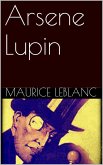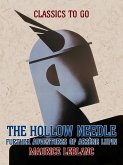In "Arsène Lupin," Maurice Leblanc introduces readers to his notorious gentleman thief, Arsène Lupin, whose escapades combine elements of detective fiction with a flair for adventure and wit. The narrative unfolds through a series of short stories that plunge the reader into a world of cunning heists, social critique, and the thrilling interplay between Lupin and his nemesis, detective Sherlock Holmes. Leblanc's masterful prose blends humor and intrigue, showcasing a literary style that reflects the early 20th century's fascination with crime and social class, while challenging traditional moral codes. Maurice Leblanc, a pioneering figure in French literature, was influenced by the burgeoning genres of detective fiction and adventure stories that captivated early 1900s readers. His background in literature and journalism provided a unique platform to explore themes of cunning, justice, and the duality of human nature. By crafting Lupin, Leblanc not only contributed to the genre but also commented on the societal structures of his time, illustrating that even a thief can be charismatic and noble. "Arsène Lupin" is a must-read for enthusiasts of detective fiction and classic literature alike. Its engaging plots and clever twists invite readers to root for a protagonist who, despite his criminal pursuits, embodies charm and intellect. Dive into the intricate world of Arsène Lupin and discover why this character remains a timeless icon in literary history.
Dieser Download kann aus rechtlichen Gründen nur mit Rechnungsadresse in A, B, BG, CY, CZ, D, DK, EW, FIN, F, GR, H, IRL, I, LT, L, LR, M, NL, PL, P, R, S, SLO, SK ausgeliefert werden.









